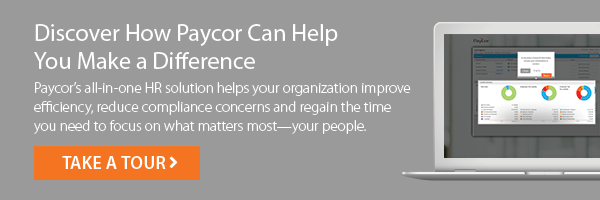When an employee walks in five minutes late, it might seem like a non-issue. What’s a few lost minutes against years of good service? Tardiness in the workplace isn’t the end of the world – at first. But over time, it can become a major problem.
Almost a fifth of American workers are late for work at least once a week (YouGov). Those few minutes add up into lost hours and lost revenue. Employee tardiness at work costs US businesses billions of dollars each year (Business News Daily).
Chronic tardiness in the workplace causes other problems, too. If one associate is repeatedly late, and leaders ignore it, colleagues may start to wonder why they need to be on time. On the other hand, if you react too fast or too harshly, it might seem like an overreaction. So how do you determine the best response? As with most HR issues, the first step is to learn more about the problem.
Common Causes of Tardiness and Absenteeism
There are lots of good reasons that an employee may be late for work. YouGov polling suggests that the main causes of employee tardiness are traffic, childcare, or bad weather – all totally understandable reasons.
Sometimes, it makes sense to take employee tardiness in stride. If a major snowstorm causes city-wide traffic jams, you can expect several workers to arrive late. But if a single person arrives late every day, you might have reason to worry. That could indicate a deeper problem, like job dissatisfaction, family stress, or ongoing health issues. It might also be a warning sign for burnout or even an employee departure.
Whatever the reason, a chronically late employee probably needs a different kind of support than what they’re currently getting. Leaders should approach these patterns with an eye for nuance. If an employee just had a baby, for example, they might need to adjust their hours for a while. If they’re having a conflict with their supervisor, you might need to step in and help them find a resolution. Open lines of communication and look for ways to empower everyone on your team. When you involve them in the solution, it becomes an opportunity to boost employee engagement.
How to Address Tardiness in the Workplace

Clarify Expectations It’s impossible to meet a goal you don’t understand. How many times can an employee be tardy before you discipline them? What are the consequences of being late? Make sure employees know exactly what you expect of them at work, and what will happen if they can’t meet your expectations. You can do this by implementing a comprehensive employee attendance policy.

Track Time Accurately What happens when you know an employee’s been late every day for a week, but they swear you just didn’t see them arrive? Accurate data helps everyone avoid conflict. You can use time & attendance software to track each worker’s hours and spot trends before they turn into problems. And if you ever need to discipline an employee, you can easily explain the reason.

Schedule Far in Advance Scheduling can be time-consuming and complex, especially if you have hourly workers. It’s also a high-stakes project because it affects so many aspects of your business. Shoddy scheduling undermines efficiency, productivity, employee engagement, profitability…the list goes on and on. And creating the schedule isn’t enough – you also have to communicate it to your team. Last-minute changes make employee tardiness more likely. Staff scheduling software solves a lot of these problems. It helps you streamline every step of the process, balancing your business goals with employees’ needs. You can also publish the schedule well in advance, giving employees plenty of time to plan around work. According to Paycor research, the right technology can even decrease payroll costs by 7.2%.

Use a Scheduling App Roger Lay, Director of Mobile Enterprise at Deloitte Digital, believes smartphones and apps are the key to business administration. New technology “has great potential for increasing efficiency, enabling companies to save costs and remain competitive,” he says. Scheduling apps let your team receive, view, and request schedule changes from anywhere, at any time of day. Stop spamming them with emails they’ll just ignore, and equip them with the tools they need to plan ahead. By giving your team constant access to the latest schedule updates, you can set them up for success and lower rates of workplace tardiness.

Offer Flexible Scheduling At least since 2020 – and possibly earlier – employees want more flexibility at work. One study shows that when given the option, 87% of people will choose to work from home (Gallup). In another survey, a staggering 94% said they want jobs with more flexible scheduling options (Business Insider). This is more than a trend; it’s now a key aspect of employee loyalty. Leaders can use technology to juggle different workers’ scheduling requests, keeping everyone happy including investors and shareholders. This strategy improves retention rates and over time, it can have a huge impact on your company’s bottom line.

Send Reminders Perks like flexible scheduling have their downsides. If your employees’ schedules change from week to week, they might forget when they need to be at work. Why not give them a quick reminder? A Paycor study found that just by implementing shift reminders, the total minutes lost from employee tardiness went down more than 16%. That’s why you can set up the Paycor Scheduling mobile app to ping employees before every shift.
How Staff Scheduling Software Can Help
Scheduling can be a headache for everyone, from business owners to hourly workers. And repeated mistakes have a huge impact on your long-term success. Finding a system that works for you – not against you – is essential.
Staff scheduling software could be that solution. The right technology streamlines basic administrative tasks and simplifies communication. That way leaders can focus on the team’s overarching needs, while Paycor Scheduling takes care of the details.










